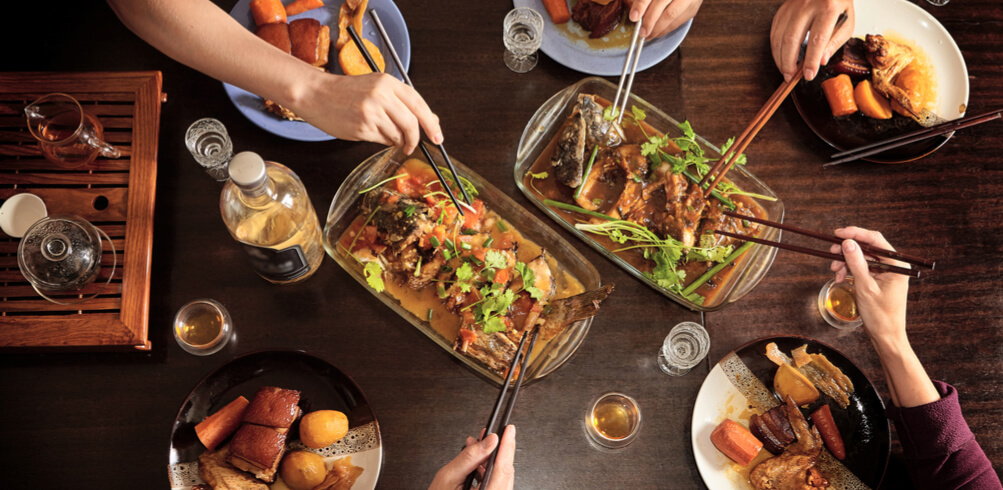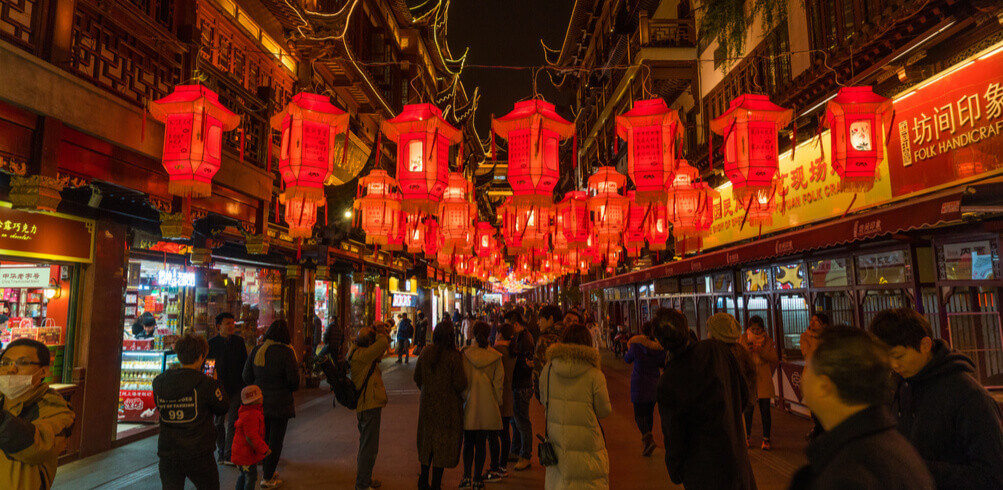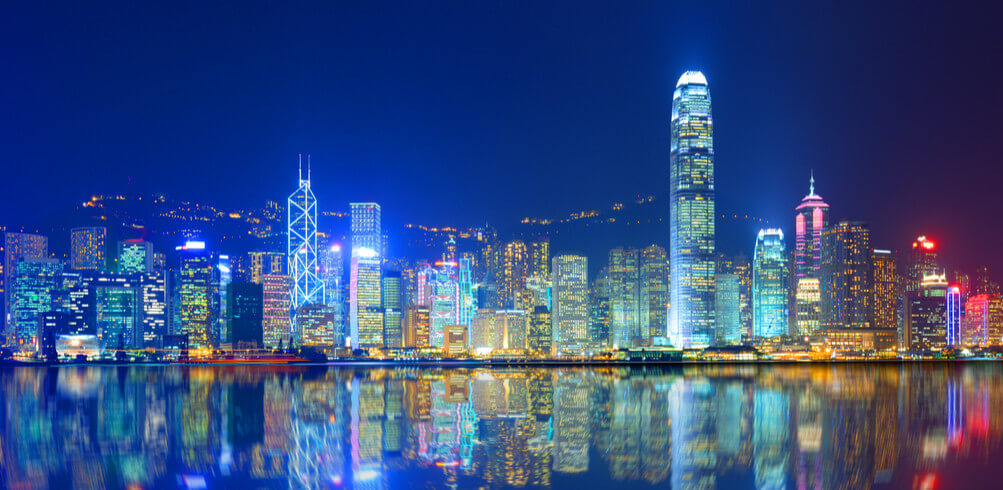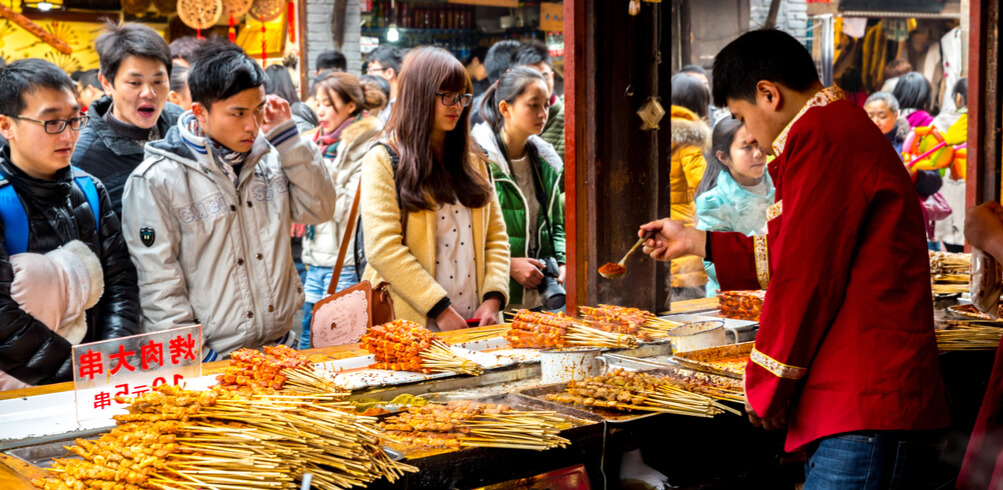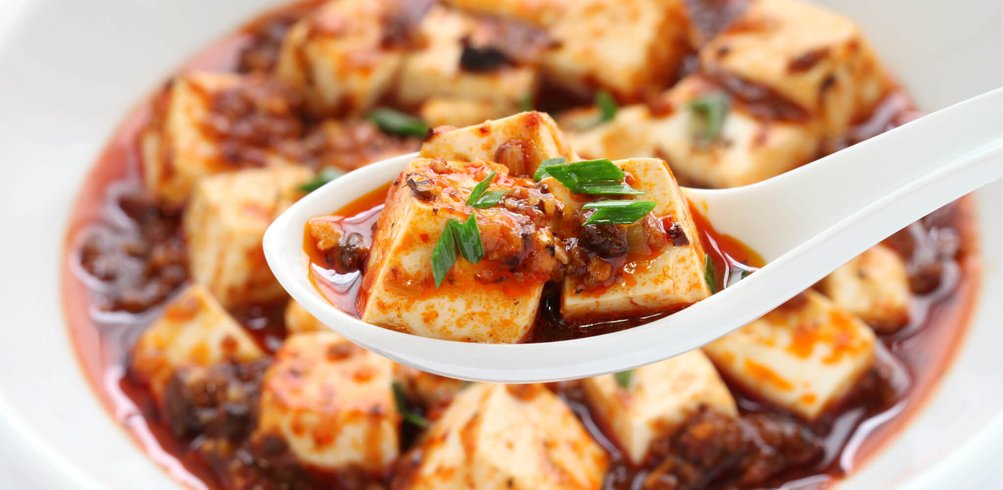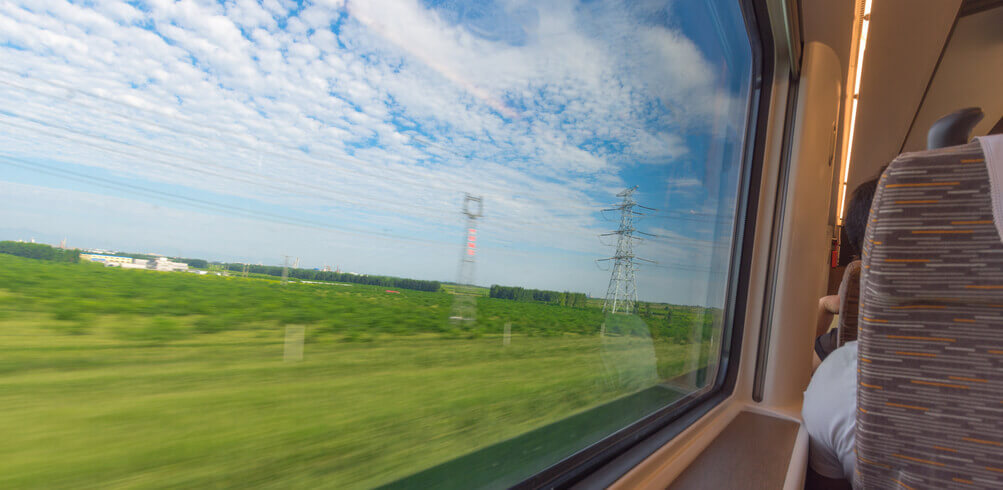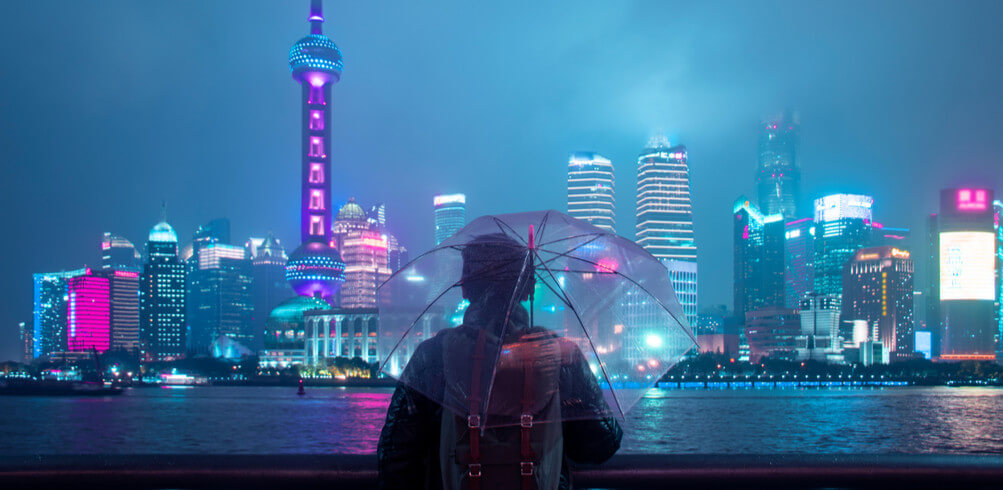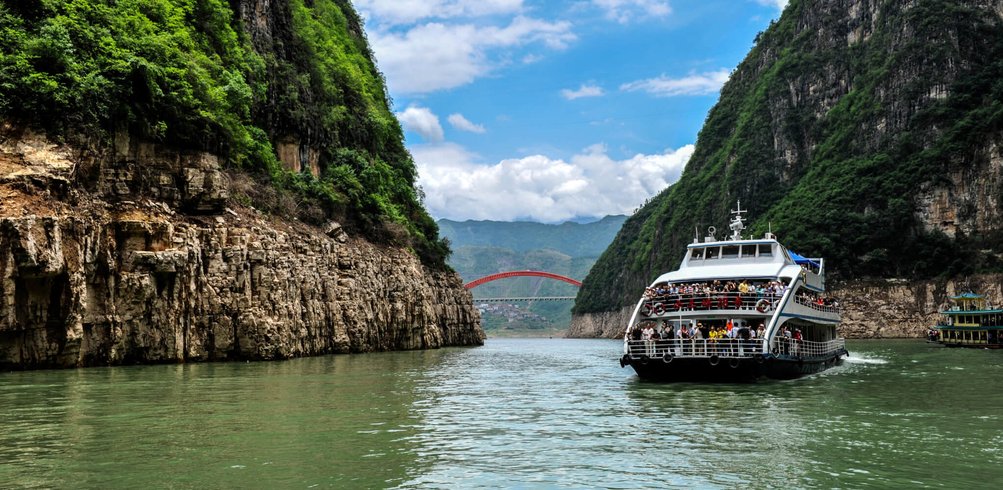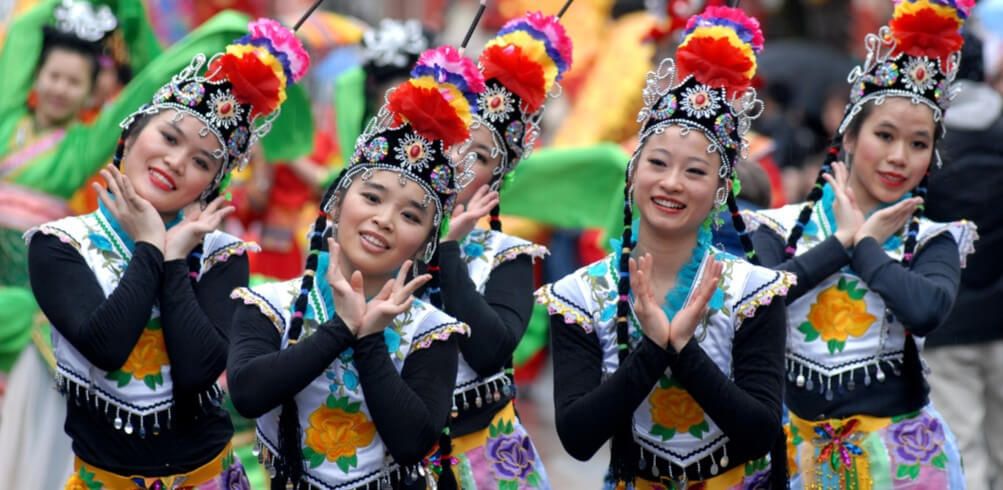Destinations
With its ancient landmarks, cultural treasures and breathtaking landscapes, China is a destination that deserves a place on every traveller’s bucket list. Few countries manage to blend history and modernity so effortlessly. From the Great Wall to futuristic skylines, tours of China reveal a nation of striking contrasts.
Explore Beijing, the iconic capital, where centuries-old temples stand alongside modern architecture. Stroll along the Bund in Shanghai to see its colonial past, or visit Chengdu to experience the charm of the Giant Panda in its native home.
From lush mountain ranges in central China to desert dunes in the north and tropical beaches in the south, there is something for every style of traveller. Inspiring Vacations offers a wide range of China tour packages, from small group journeys to fully guided tours of China, giving you the chance to experience the country your way.
Click here to learn more about when is the best time to visit China and discover why these are some of the best China tours available.
Inspiring Vacations offers a range of thoughtfully designed tours of China to suit different travel styles and preferences. Our Classic tours combine comfort and value, taking you through must-see sights with a group of up to 40 people. If you prefer a more intimate setting, our Small Group tours are capped at just 24 travellers and offer more time to explore at a relaxed pace.
For those who enjoy flexibility and independence, we also provide Tailormade tours, which are fully customisable itineraries, allowing you to design every element of your trip, including destinations, pace, travel style, private transfers, hotel upgrades and bespoke day trips. Private tours are also available for travellers wanting to enjoy one of our existing itineraries exclusively for their travel party.
All of our guided tours to China are fully escorted by expert English-speaking tour leaders or knowledgeable local guides. This means you're not just following an itinerary; you're gaining real insights into the culture, history and daily life of the places you visit. From navigating local customs to helping you order an authentic meal, your guide is there to support you throughout the journey.
Some of our China tour packages are flight-inclusive, meaning international return flights are included along with accommodation, transfers, and guided touring. Others do not include flights, giving you the flexibility to book your own. To check if flights are included, look for the "Flights Included" label on the tour page or refer to the inclusions section of each itinerary. If flights aren’t included, you’re still welcome to book your own and join the tour on the ground.
There are different ways to experience the Great Wall, from the well-preserved and less steep Mutianyu section to the rugged, unrestored Jiankou. Some sites have cable cars or even toboggans, but these don’t go to every viewpoint. Regardless of the section, you’ll encounter steps and uneven terrain, so reasonable fitness and comfortable shoes are recommended. Your China tour guide can help you decide which option best suits your comfort level.
Many of our China tours include travel on China’s high-speed rail network, which is efficient, clean and comfortable. You’ll receive a reserved seat and be guided through the boarding process. Most journeys are a few hours long and offer a relaxed break between destinations. Luggage space is available, but you’ll need to carry your own bags on and off the train, so packing light is recommended.
If you want to enjoy the best China touring experience, we recommend visiting in spring (March to May) or autumn (September to November). These seasons offer comfortable weather and ideal conditions to explore China.
These seasons usually bring mild temperatures and clearer skies, making them ideal for sightseeing. Spring offers colourful blossoms, while autumn brings crisp air and beautiful golden foliage, especially around the Great Wall and countryside regions.
Summer (June to August) tends to be hot and humid in many regions, and winter (December to February) can be cold, especially in the north. Both seasons come with pros and cons depending on your preferences for weather, crowd levels and travel deals.
Golden Week holidays in early May and early October can also be a fascinating time to visit, with public celebrations, fireworks and cultural events taking place across the country. Be mindful that these periods alongside Chinese New Year (in late Jan-Feb) can be busy, with more local travellers at popular sights.
China is a vast country with a range of climates. Northern cities like Beijing and Xi’an can be very cold in winter, while southern areas like Guilin and Guangzhou tend to be hot and humid in summer. Coastal cities such as Shanghai may be prone to rainfall during the monsoon season. If your itinerary includes both northern and southern regions, packing layers is the smartest way to stay comfortable across temperature changes.
China primarily uses Type A, Type I and Type C plugs—we recommend a multi-adapter to ensure you cover all bases. The standard voltage is 220V and the frequency is 50Hz. If your devices use a different plug type or are designed for 110V, you’ll need an adapter and possibly a voltage converter. A universal travel adapter with surge protection is a smart addition to your China travel packing list.
China offers an incredibly diverse culinary experience, shaped by thousands of years of regional tradition. Here’s what to expect on one of our China group tours:
You’ll have plenty of opportunities to try local food on our group tours of China, including optional experiences like a Peking Duck dinner or a hotpot meal in Sichuan (subject to individual itineraries and inclusions).
Tap water is not considered safe to drink in China. It’s recommended to drink bottled water, which is widely available and inexpensive. Many hotels on our tours of China provide bottled water in guest rooms. It’s also a good idea to use bottled or boiled water when brushing your teeth.
China uses the Renminbi (RMB), also known as the Chinese Yuan (CNY). Cash is still widely used, particularly in smaller towns or markets, and cash in small denominations is helpful for taxis, markets, and smaller shops. ATMs are common in cities, and major hotels and some larger restaurants accept international credit cards. Mobile payments like WeChat Pay and Alipay are popular among locals but may be difficult for international travellers to set up as they typically require a Chinese bank account.
Tipping is not a standard practice in China and is often not expected in restaurants or taxis. However, it has become more common in the tourism industry. If you’ve received excellent service from your tour guide or driver, a small gratuity is a thoughtful gesture and always appreciated.
Yes, most hotels and many public spaces offer free Wi-Fi, though connection speeds can vary. Be aware that many Western websites and apps, including Google, Gmail, YouTube, Facebook, and Instagram, are blocked in mainland China. You’ll need to install a Virtual Private Network (VPN) before your trip if you want to access those services.
If you plan to use Google, Gmail, social media platforms, or messaging services like WhatsApp while in China, a VPN is essential. These services are blocked under China’s internet restrictions. Make sure to download and set up a reputable VPN on your devices before your China tour, as VPNs can’t be downloaded once you’re in the country. Remember that even with a VPN, internet speed can be slow for some services, so download essential files or apps in advance.
Public toilets in China are often squat-style, especially in smaller towns, rural areas and public transport hubs. Western-style toilets are more common in hotels, restaurants, and tourist attractions. It’s a good idea to carry tissues and hand sanitiser, as many public toilets don’t provide toilet paper or soap. For more information about what to expect on your travels, read our article: Visiting China: what you want to know but are too afraid to ask.
Mandarin Chinese is the official and most widely spoken language in China. In major cities and tourist hubs such as airports and train stations, you'll often find bilingual signage in both Mandarin and English. Hotel staff and tour guides may also speak basic English.
However, in more rural or less-visited areas, English signage is limited and local residents may not speak English. A translation app can help, and learning a few basic Mandarin phrases can make day-to-day interactions much smoother.
When visiting temples or religious sites, dress modestly and avoid loud behaviour. Hats should be removed, and photography may be restricted in certain areas. Always check signs or ask your guide. In some Buddhist sites, such as those with stupas or prayer wheels, it is customary to walk in a clockwise direction, but this may not apply everywhere. The best approach is to follow local cues, posted instructions, or your guide’s advice.
Learning a few simple Mandarin phrases before your guided tour of China can make your experience more enjoyable and rewarding. These phrases are beneficial when navigating public transport, ordering food, or asking for help. Here's a handy list to get you started:
Having a few of these phrases written down or saved on your phone can be a big help. A translation app can also be useful, but showing locals that you've made the effort to speak a bit of Mandarin is always appreciated. Your local guide is always available to help.
Bargaining is common in markets and some smaller shops, but not in supermarkets or chain stores. If you’re shopping in a market, be prepared to negotiate. It is part of the culture. A friendly attitude while on your group tour to China and a willingness to walk away are helpful strategies.
Yes, but international roaming charges can be expensive. Consider purchasing a local SIM card if your phone is unlocked. Alternatively, check with your provider about international travel plans. Wi-Fi is widely available, and messaging apps like WeChat are commonly used within China.
Understanding and respecting local customs can help you feel more connected to the places you visit and avoid misunderstandings. In China, small gestures of courtesy are appreciated and go a long way. Here are a few cultural tips to keep in mind:
When in doubt, observe how locals behave or ask your guide. A little cultural awareness can make your experience far more rewarding. We also recommend reading our article: China bound: 10 things to know before you go.
Most travellers require a visa to enter China. It is important to apply well in advance of your departure and to check the latest requirements. Visit our Visa Entry Requirements page for up-to-date information tailored to your nationality. Visa processing times can vary depending on the volume at consulates, so do not leave it to the last minute.
Booking a guided tour to China with Inspiring Vacations is simple and secure. Start by browsing our China tours from Australia to compare itineraries, dates, and inclusions. Each tour listing includes full details about what’s included, daily activities, flight options, and pricing. When you have found the right fit, you can book online through our website or call us on 1300 88 66 88. Our friendly team is always available to answer your questions, explain tour differences, or guide you through the booking process.
From cultural celebrations to special events, discover the 25 cities around the world that are set to shine in 2025 Exploration, discovery, and the thrill of stepping outside our comfort zones—travel is more than just a two-week shuffle from one place to the next. It shapes our perspectives, ignites our curiosity, a...
From eating and transport to vaccinations and the internet, here’s what you need to know before your Middle Kingdom adventure A visit to China is unlike a visit to any other place on earth. As a nation overwhelmingly rich in culture, history, art and cuisine, it’s little wonder China is an increasingly popular destinat...
Planning a China travel adventure? You’re not alone if your curiosity is tangled up with a few... awkward questions. China is thrilling, intense, and packed with cultural differences that can leave even seasoned travellers wondering what they’re really in for. From squat toilets and social etiquette to the mysteries of...
What to do and see on a one, two, three-day layover in The Pearl of the Orient One of the best airports in the world, the well-designed Hong Kong International Airport has great eats, excellent amenities and plenty of retail therapy to soothe the most beleaguered traveller. Stop by Sky Bridge at Terminal 1, which has...
It might seem odd to westerners but haggling is a positively enjoyable pastime for Chinese shoppers. Get the most out of your shopping experience without paying over the odds A strange language, a new culture, a different currency, arriving in a foreign country can be daunting. But finding unique gifts and engaging w...
In China, the most common greeting isn’t just a simple "hello"—it’s "Chi le ma?” It translates to "Have you eaten?" and reflects how deeply food is integrated into life in China. To say that food is central to Chinese culture is truly an understatement! With eight regional cuisines and countless dishes, there's somethi...
The nation that gave the world gunpowder and the compass has since reinvented the bullet train and currently boasts the fastest vehicle on two tracks. The Chinese High-Speed Rail (HSR), which began operations in the mid-2000s, has managed to zoom ahead of Japan’s Shinkansen. Today, the HSR system has become more popula...
The Middle Kingdom—a land of extraordinary landscapes and ancient history. But, when is the best time to go? From sprawling landscapes to one of the world’s oldest continuous civilisations, the biggest population in the world*, and of course, mind-blowing development – China really does have it all. Thanks to its en...
Asia’s longest river is the lifeblood of China The Yangtze River meanders through central China, sustaining life and giving way to rich biodiversity. It crosses diverse terrain, from valleys to mountains, limestone gorges and even wetlands, making it both an important water source and transportation route. But Asia’s l...
Chinese New Year is serious business in its motherland, but it also offers a glimpse at the best and brightest of traditional Chinese culture Chinese New Year, also known as Spring Festival or chunjie, is a 15-day festive period at the beginning of the year—usually late January or mid-to-late February (in 2025 it fal...

